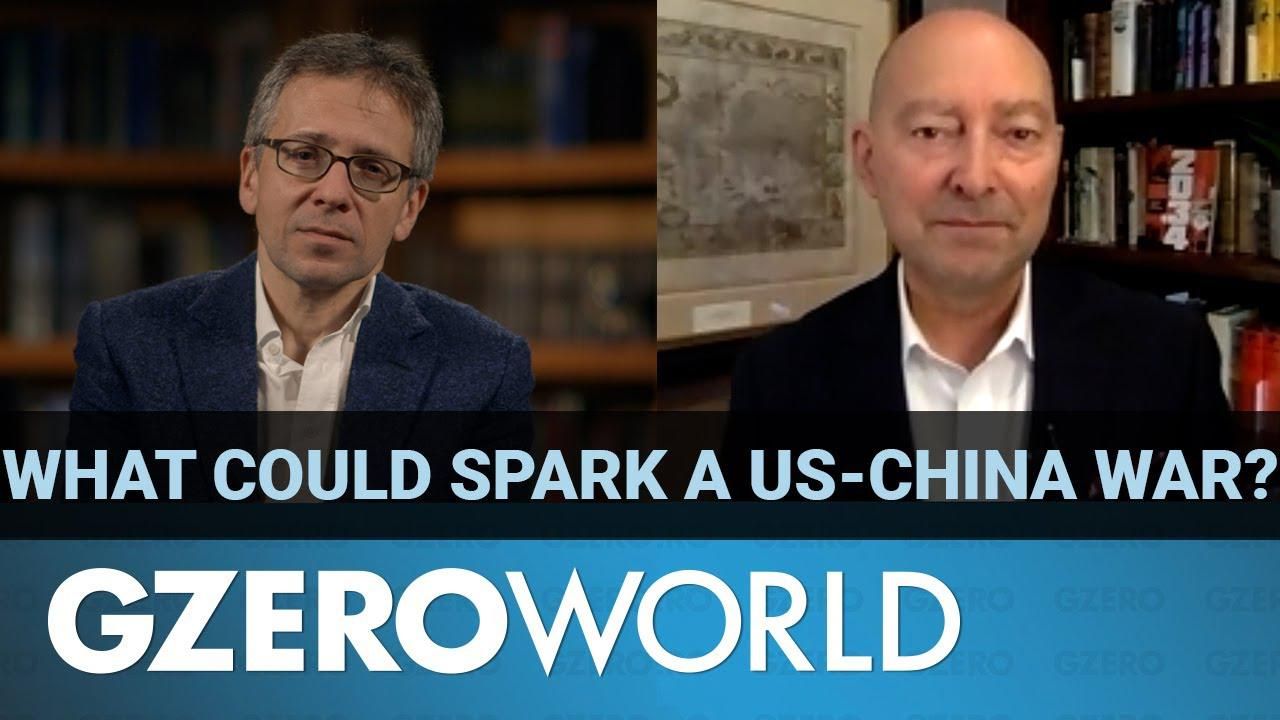May 17, 2021
Ask national security experts how they view China today and they'll likely the use a term like "adversary" or "economic competitor." But what about "enemy?" How close is the world to all-out-war breaking out between United States and China? According to US Admiral James Stavridis (Ret.), who served as Supreme Allied Commander to NATO, those odds are higher than many would like to admit. In fact, Stavridis says, the US risks losing its military dominance in the coming years to China. And if push comes to shove in a military conflict, it's not entirely clear who would prevail. Admiral Stavridis speaks with Ian Bremmer on GZERO World and makes the case for why the fictional depiction in his bestselling new military thriller 2034 of a US-China war could easily become reality.
From Your Site Articles
- Why John Kerry's trip to China matters for all of us - GZERO Media ›
- The limits of a China-Russia partnership - GZERO Media ›
- US election seen from China: Worries about a "hot war" - GZERO ... ›
- Would China really invade Taiwan? - GZERO Media ›
- Democrats and Republicans unite! At least against China. - GZERO Media ›
- Democrats and Republicans unite! At least against China. - GZERO Media ›
- Biden's vaccine diplomacy and US global leadership; US-China bill gets bipartisan support - GZERO Media ›
More For You
- YouTube
At the 62nd Munich Security Conference in Munich, GZERO’s Tony Maciulis spoke with Benedikt Franke, Vice Chairman and CEO of the Munich Security Conference, to discuss whether the post-1945 global order is under strain or already unraveling.
Most Popular
- YouTube
Zelensky agrees: elections matter #PUPPETREGIME
As more small businesses move sales, payments, and customer relationships online, they unlock new opportunities, but they also become easier targets for cyber-criminals and other threat actors.
TOKYO, JAPAN - FEBRUARY 8: Japan's Prime Minister Sanae Takaichi, leader of the ruling Liberal Democratic Party (LDP), places a red paper rose on the name of an elected candidate at the LDP headquarters on general election day on February 08, 2026 in Tokyo, Japan. Voters across the country headed to polls today as Japan's Lower House election was held.
Photo by Kim Kyung-Hoon - Pool/Getty Images
When Japanese Prime Minister Sanae Takaichi called snap elections last month, it was a big gamble. Holding a winter election just four months into her tenure with no real policy record to run on?
© 2025 GZERO Media. All Rights Reserved | A Eurasia Group media company.
